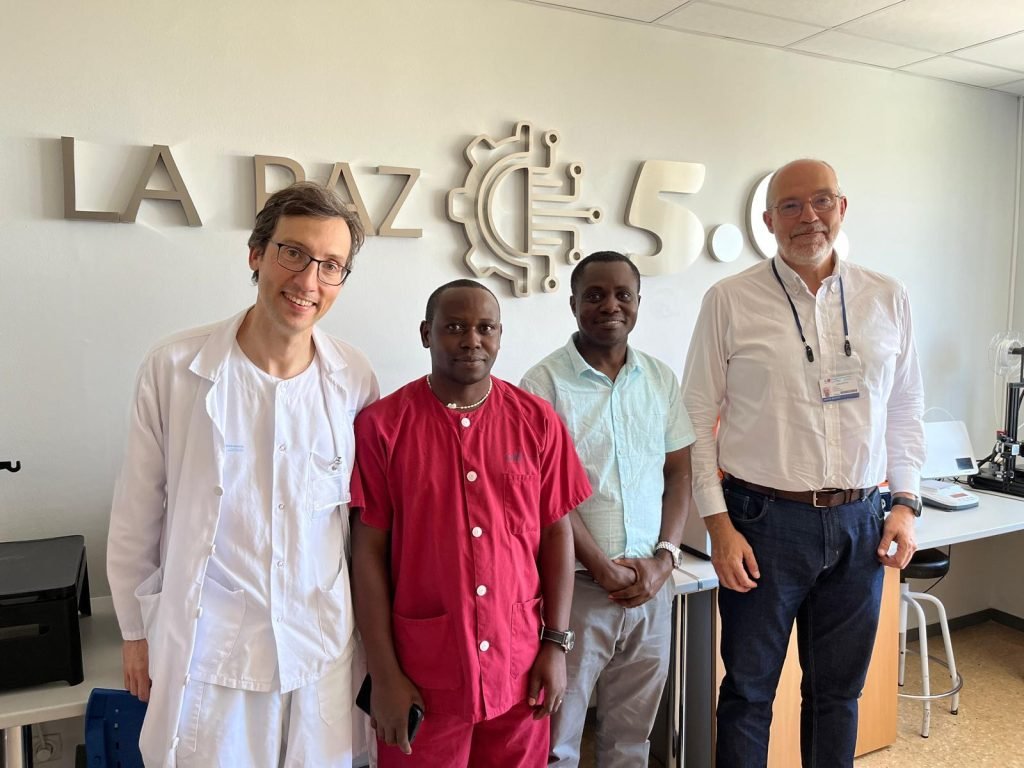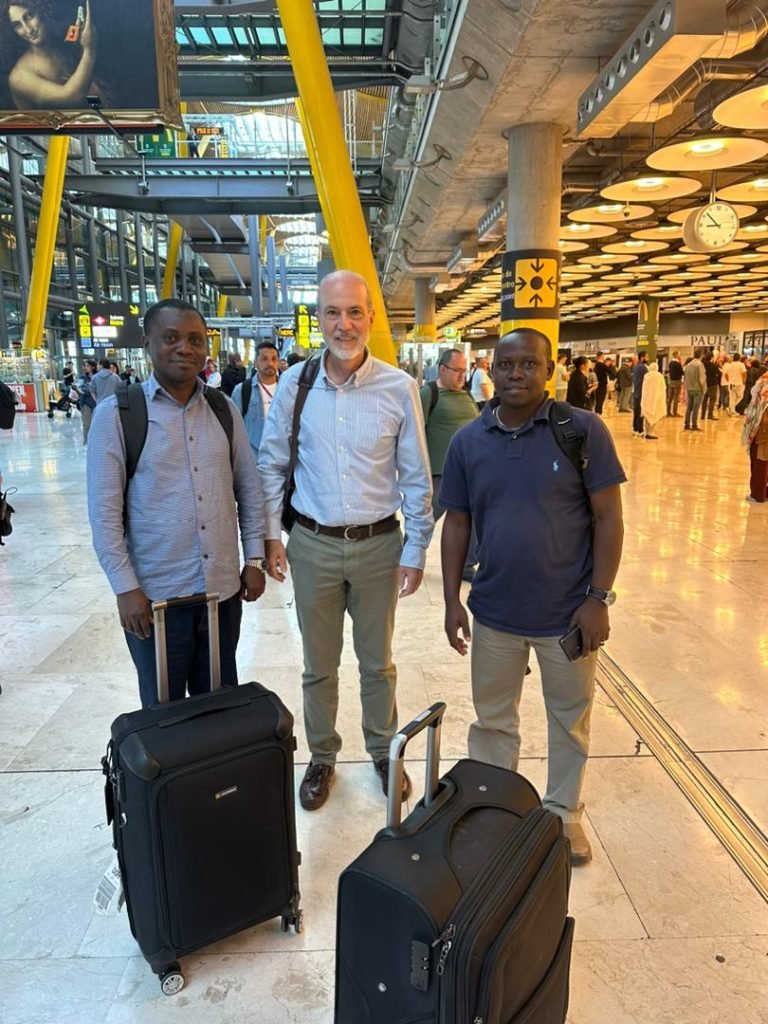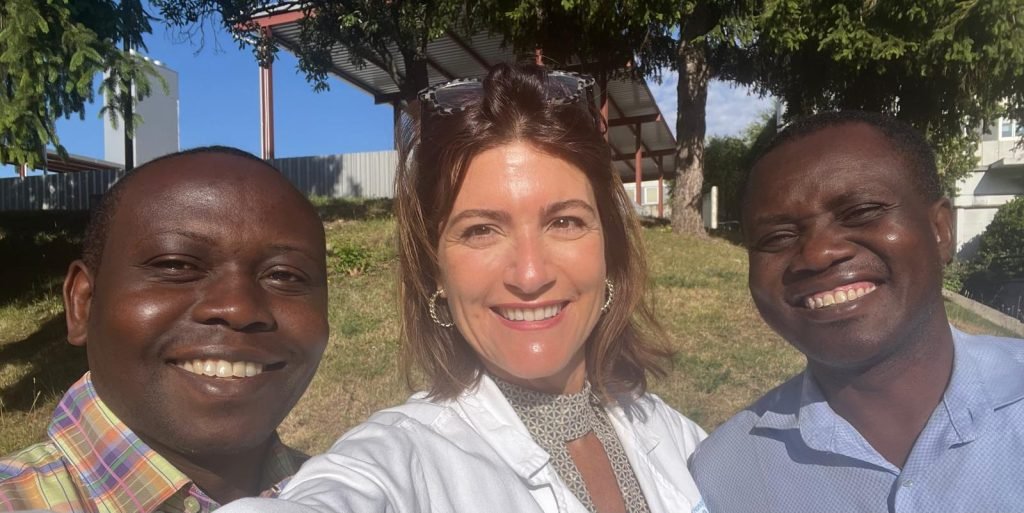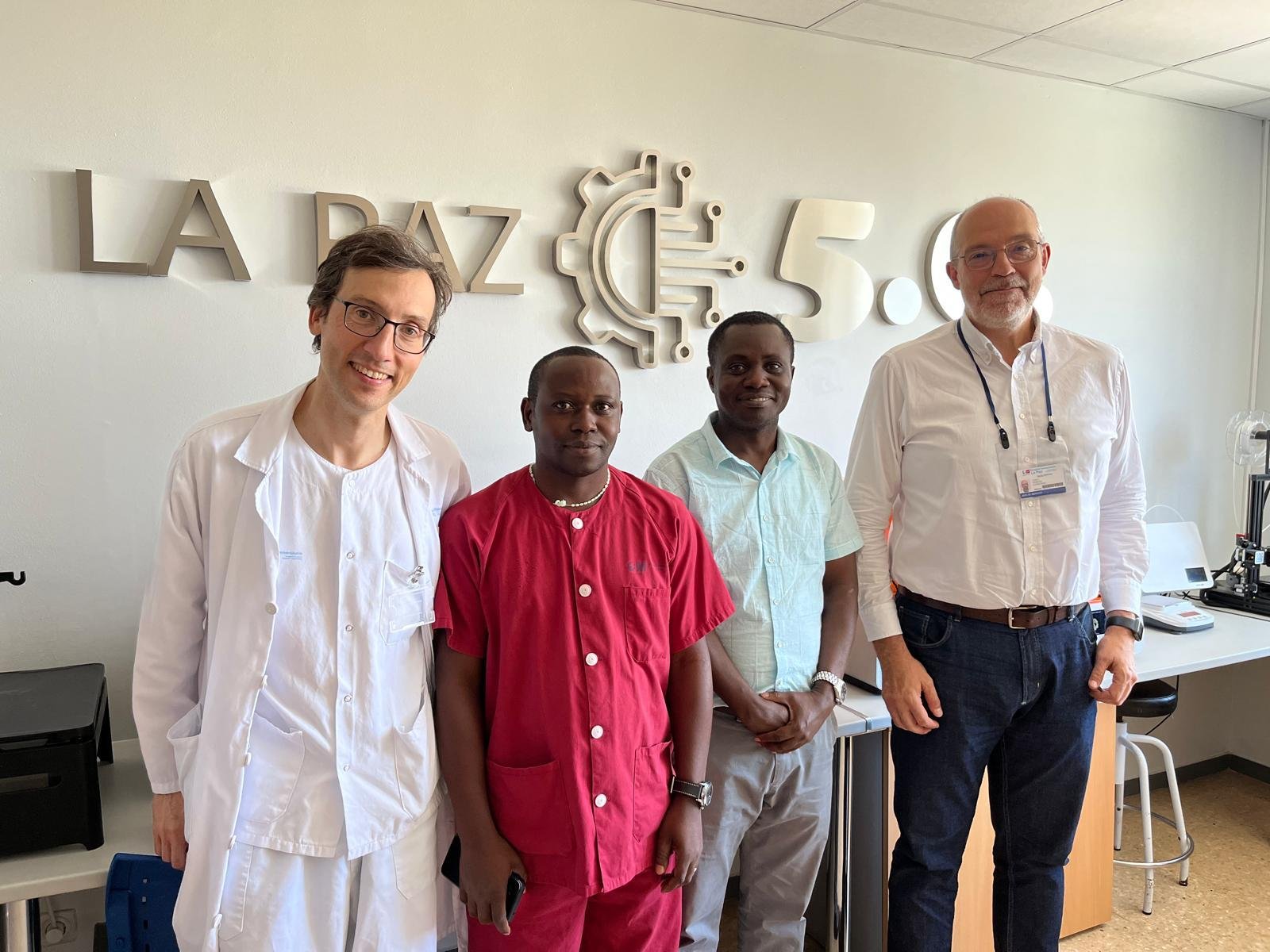As part of the Victoria Lake Region Cranio-maxillofacial Project, the first Tanzanian surgeons have arrived in Madrid in June 2024 to begin advanced training in several European hospitals. Drs. Emmanuel Motega and Fidelis Mbunda have joined Hospital La Paz, under Prof. José Luis Cebrián, and Hospital Ramón y Cajal, under Prof. Julio Acero, for four months. They will then continue their training at the Queen Victoria Hospital in London with Prof. Aakshay Gulati for two more months, and finally, complete this period with Prof. Gosla Reddy in Hyderabad, India.
This milestone marks the beginning of a collaborative program between Bugando Medical Center in Mwanza and several European institutions, aimed at creating a multidisciplinary surgical unit in Tanzania.



But this is a multi-partner project, which so far has the collaboration of the following organizations (and is open to new partners):
- Fundación Española de Cooperación Sanitaria (FECS). www.fecs.es
- Future Faces. https://www.futurefaces.org.uk/
- Smile House Fondazione. https://smilehousefondazione.org/
- GSR Institute of Craniomaxillofacial Surgery. http://www.craniofacialinstitute.org/
- Smile Train. https://www.smiletrain.org/
- Hospital Universitario Ramón y Cajal, Madrid
- Hospital Universitario La Paz, Madrid
- Queen Victoria Hospital, London
- Ospedale San Filippo Neri, Rome
You are all welcome to join us in this promising project.
Fernando Garcia-Marin
Tony Markus
